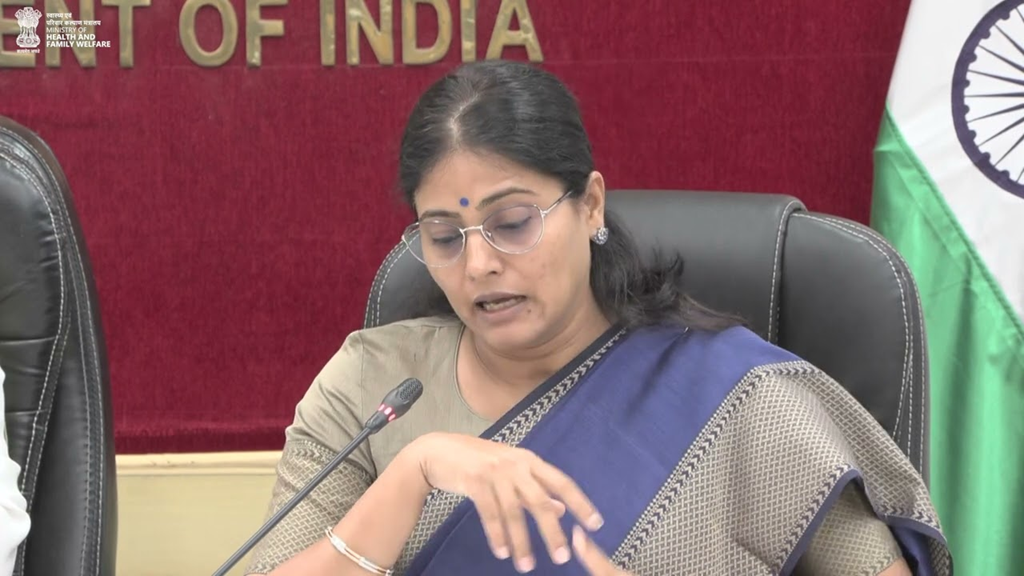
New Delhi: India has been able to position itself as a leading player in the global medical technology landscape by addressing challenges of the sector and aligning with the global standards, Minister of State for Health Anupriya Patel said. Addressing the Medtekon 2025 organised by the Medical Technical Association of India (MTaI), Patel said medical technology in India is a rapidly growing and a very dynamic sector.
There is a scenario where there is an increasing demand for healthcare and there are constant technological advancements and innovations, she said.
Everybody wants to have better healthcare outcomes and delivery, she noted.
“The government is also providing a lot of support to its policies because we have a focus on growing India’s self-reliance in the medical technology sector. These are situations which have led to the growth and vibrancy of this sector. The country’s medical sector is the fourth largest in Asia after China, Japan and South Korea. And we are also among the top 20 globally,” she said.
“The current size of the industry, which is around 14 billion dollars, is expected to reach around 30 billion dollars by 2030. And by the same year, we also expect that the global market share of India will increase from the current 1.65 per cent to around 10-12 per cent,” Patel said.
Even in the field of exports, there has been tremendous growth, she highlighted.
India’s exports in the last financial year stood at around 3.8 billion dollars. And they have been constantly increasing in all the five major segments, she stated.
The government has been making several efforts by way of its policies, schemes and initiatives to ensure that the sector benefits.
“The medical device policy, which was approved by the government in 2023, addresses every need of the sector in a very comprehensive manner. Along with it, the effective implementation of the regulatory framework where we place a lot of emphasis on transparency and global alignment, that has also led to the growth and progress of the industry that we see today.
“A milestone achievement has been the adoption of the medical device rules in 2017. And also the digitalisation of the regulatory processes which has reduced a lot of paperwork and streamlined the interaction between the stakeholders as well as the regulators,” she said.
While the Export Promotion Council, which has been created for medical devices, is opening up new international markets for our products, we also have the reconstitution of the Medical Devices Promotion Council which has stakeholders from both industry and government, the minister said.
To attract investments, the government has allowed 100 per cent FDI through the automatic route and the inflow in this sector under the FDI scheme has registered growth.
“By addressing the sector’s challenges and by aligning with the global standard, we have been able to position India as a leading player in the global MedTech landscape…It would not be inappropriate to say that India’s MedTech sector today stands as a beacon of hope and possibility,” she said.
Patel called for optimally harnessing both the domestic as well as global currents in the industry, strengthening the ties between the government and the industry and all the other stakeholders like healthcare provider to create a future where medical technology is just not helping us to improve the healthcare outcome, but it is promoting the overall societal well-being”.
Pavan Choudary, Chairman of the Medical Technology Association of India said, “At MTaI, we believe that sharp advocacy is rooted in thoughtful deliberation, and MedTekon 2025 exemplifies this vision. Our membership growth — from 42 to 57 companies — makes us India’s largest MedTech association, underscoring the fraternity’s commitment to fair, equitable, and constructive industry progress.”
In an era where global cooperation is stagnating, MedTech has emerged as a stabilizing force, uniting nations even in turbulent times, Choudary said.
“The pandemic showcased this collaborative strength, with open-source ventilator designs, technology transfers, and supply chain resilience ensuring medical access across borders. However, MedTech is not just about healthcare — it is a keystone sector, integral to national security, as compromised medical devices could be weaponized by hostile actors,” he said.






